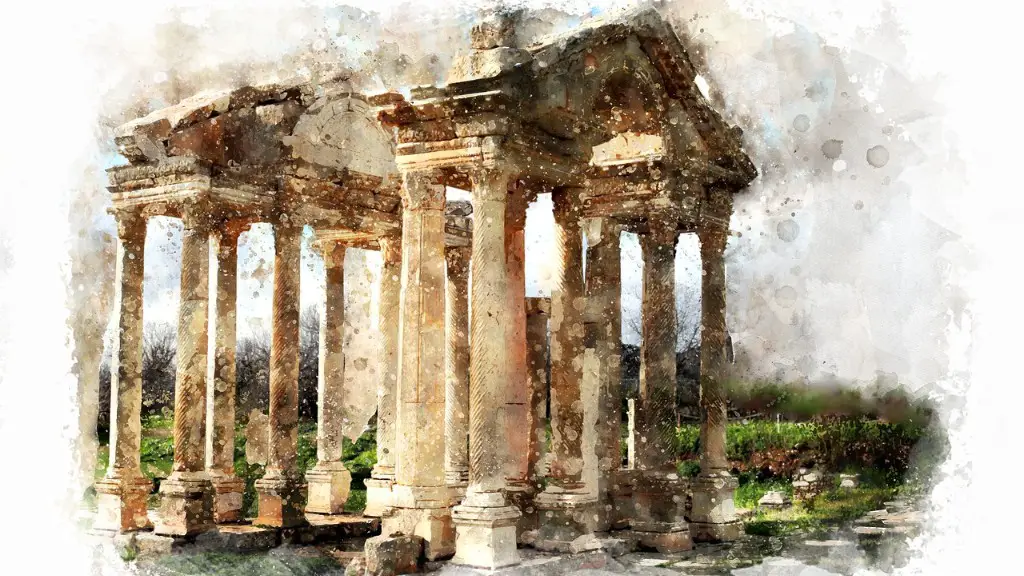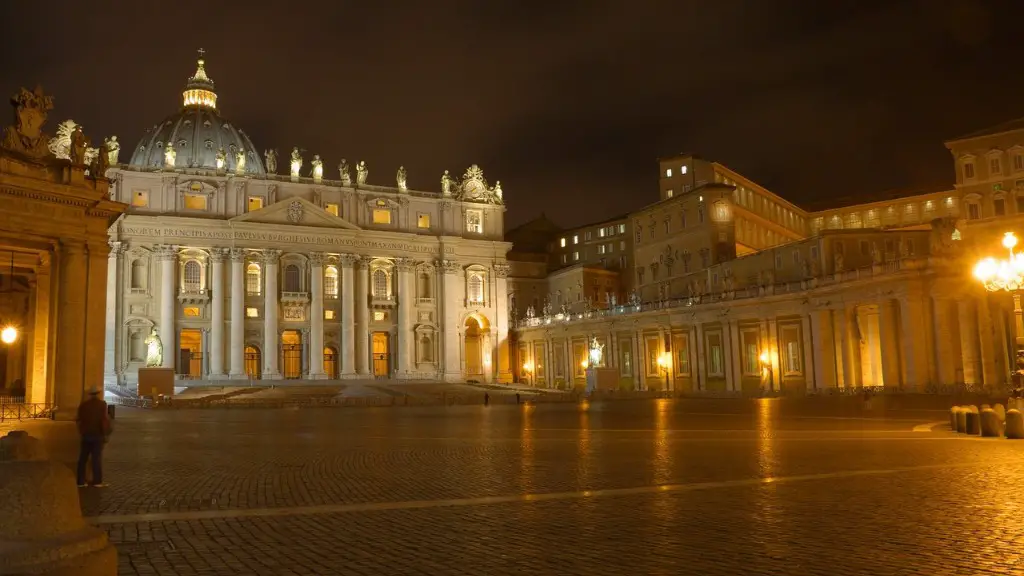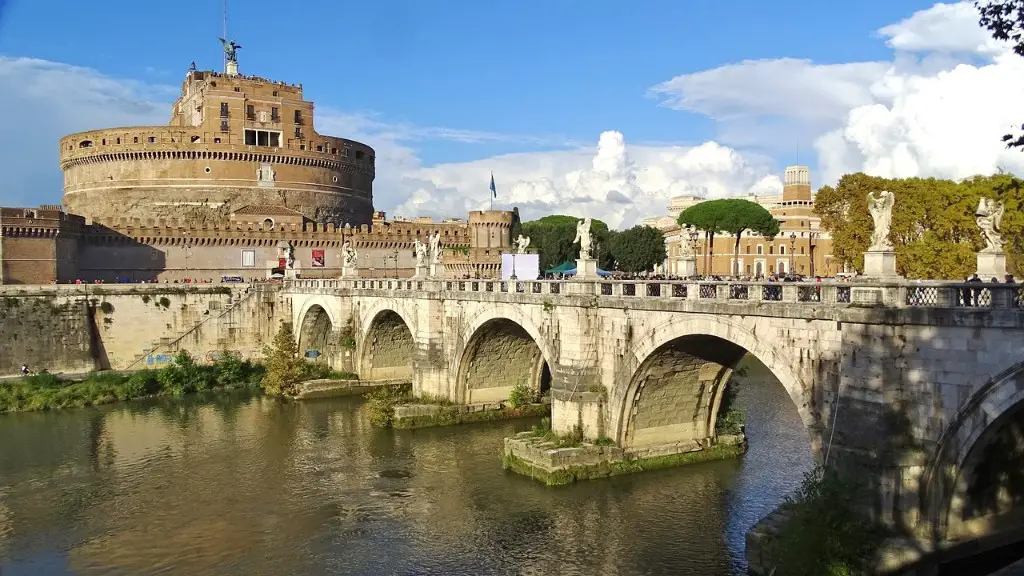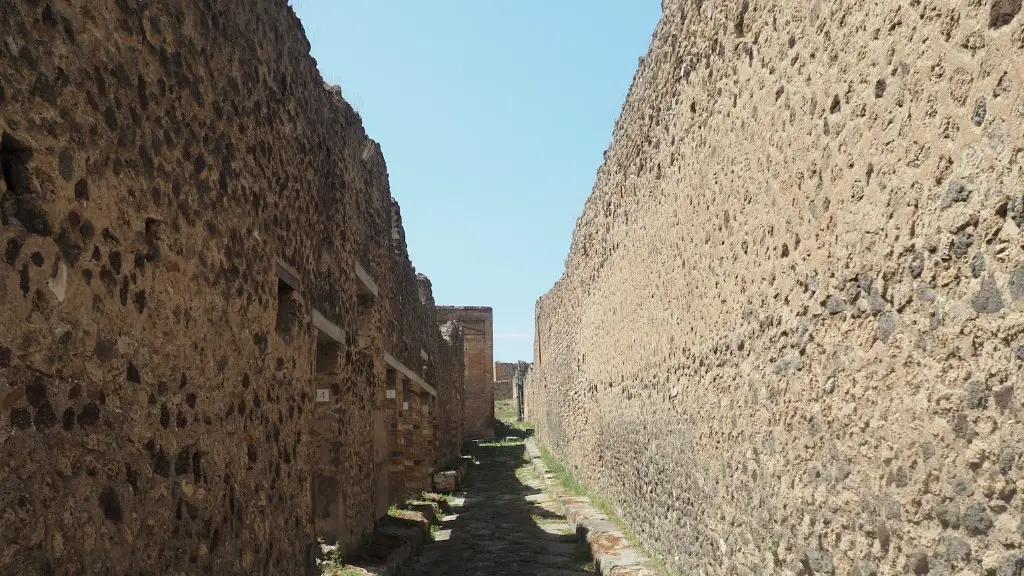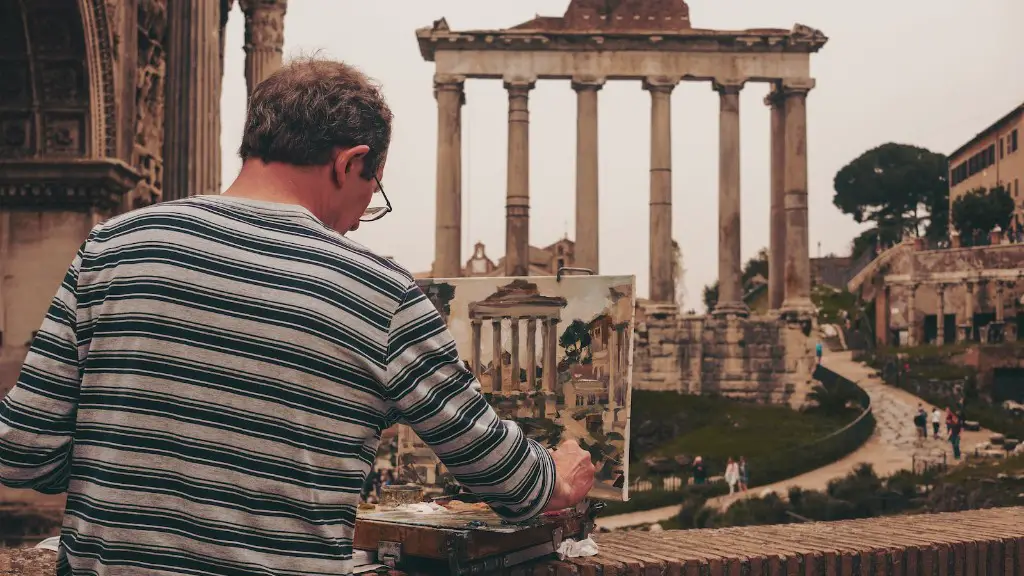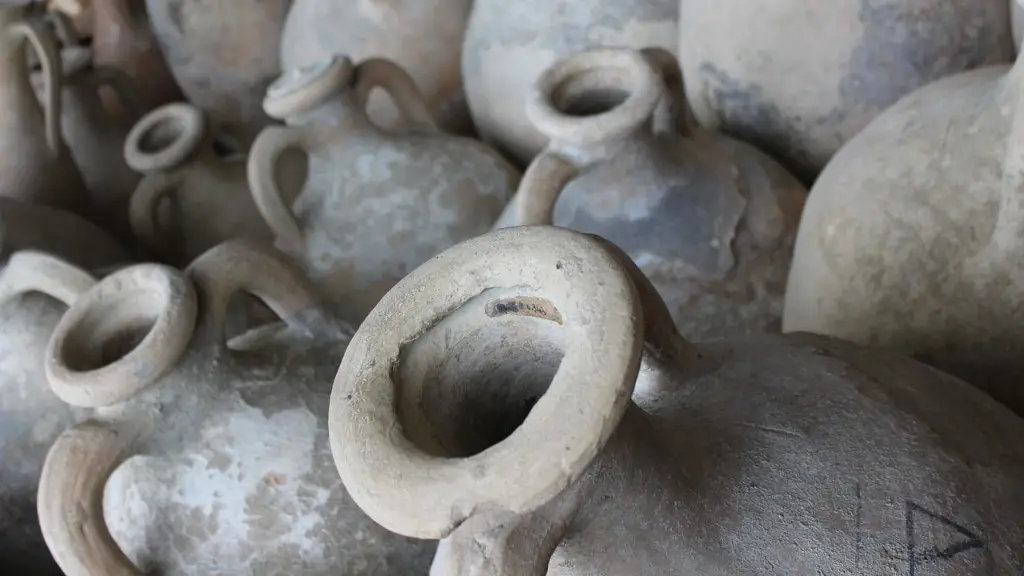The curia in ancient Rome was an important institution in the functioning and organization of the Roman state. It was an administrative body consisting of members of the senate and the Roman people. Its primary purpose was to advise the emperor and to implement his laws. It was also responsible for the legal, financial and political decisions of the empire.
The curia was originally instituted by Romulus in the eighth century BC, and it continued to serve as a center of political power for centuries. It was the ultimate court of appeals for disputes within the Roman state. It was also responsible for the elections of the emperor, and the passing of decrees.
The power of the curia derived from the Senate, which was composed of the most powerful and influential members of the Roman aristocracy. It was the Senate that held the reins of power, and the curia essentially acted as the executive arm of the Senate. The emperor was chosen by the Senate, and all his rulings had to be approved by the curia.
The curia was divided into two main divisions, the Senate and the people. The Senate was composed of the wealthiest and most influential members of the aristocratic class. They were the ultimate ruling body, which had absolute power and could make any decision they saw fit. On the other hand, the people were represented by a different body, known as the Comitia Centuriata.
The Comitia Centuriata consisted of smaller units of citizens, known as a century. Each century voted separately on any decision proposed by the Senate, and the majority vote determined the result. This system ensured that the people had a say in the decisions of the Roman Empire.
The Roman curia was responsible for a variety of important tasks. It was responsible for the administration and supervision of public works, such as roads, bridges and aqueducts. It was also responsible for the operation of the Roman military, and the management of taxes.
The curia also played a significant role in the legal system of the Roman Empire. It handled cases involving Roman citizens and foreign powers, and it was responsible for the enforcement of Roman law. In addition, the curia had the power to hear criminal cases, and to issue punishments.
The Organization of the Curia
The curia was highly organized and divided into several units, each with its own authorities and responsibilities. It was divided into four main branches: the Senate, the Comitia Centuriata, the Comitia Tributa, and the Plebeian Assembly. Each branch had its own representatives, who were chosen from the aristocracy of Rome.
The Senate was composed of the most influential members of society. It was responsible for formulating laws and bypassing foreign powers. It also had the power to appoint magistrates and praetors, who were empowered to oversee the implementation of laws. The Senate was also involved in the appointment of provincial governors, who had the power to dispense justice.
The Comitia Centuriata was divided into centuries, and each century had its own representatives. Each century was in charge of voting for certain laws or decisions. The majority vote determined the outcome. The Comitia Tributa was composed of the plebeian class, and it determined the manpower needed for military purposes. It also had the power to make decisions concerning taxes.
Finally, the Plebeian Assembly was composed of ordinary citizens, and it had the power to make decisions concerning the social and political affairs of the people. This body also had the power to pass laws. All of these branches of the curia worked in unison to advise the emperor, and to enforce the laws of the Roman Empire.
The Role of the Curia in Roman Society
The curia was an important institution in the functioning of the Roman state. It was responsible for the legal, political, and financial decisions of the Roman Empire. It had the power to appoint magistrates and praetors, who were empowered to oversee and enforce the laws. It was also responsible for the elections of the emperor, and the passing of decrees.
The curia also played a significant role in sustaining the social order of the Roman Empire. It was responsible for the organization of public works, such as roads, bridges, and aqueducts. It also supervised the operation of the Roman military. In addition, the curia was responsible for the collection and management of taxes, and for the enforcement of Roman law.
The curia played a vital role in the rise of the Roman Republic and the Roman Empire, as it was responsible for making and enforcing laws, and for the upholding of social order. It was essential to the functioning of the state, and it is an important part of Roman history.
The Decline of the Curia
The power and influence of the curia gradually declined over time. In the late republic, it began to cede authority to the dictator, who was appointed by the Senate. This ushered in a period of transition in which the curia had less power than it had before.
The decline was accelerated by the expansion of the Roman Empire, as the need for a central administrative body became less essential. Instead, the emperor and his governors handled administrative matters and held courts in their own provinces. The curia was no longer needed for legal, financial, and political decisions.
The curia eventually fell into disuse as the Roman Empire declined. It slowly disappeared in the fifth century AD with the collapse of the Roman state. Despite this, the curia remains an important institution in the history of the Roman state.
The Influence and Legacy of the Curia
The curia was a powerful and influential institution in the Roman state. It was responsible for the organization of governmental affairs, and it had the power to make and enforce laws. Its influence was felt throughout the Roman Empire, and it is an important part of Roman history.
The legacy of the curia can still be seen today. Its structure and principles were adopted by other civilizations, such as the Byzantine and Ottoman empires. In addition, the structure of the curia has been used as a model for modern-day governments, such as the United States and other democracies.
The curia was a powerful force in the Roman state, and its influence can still be felt today. It is an important part of Roman history, and its legacy is still seen in the modern world.
The Curia’s Impact on Roman Society
The curia had a significant impact on Roman society. It was responsible for the organization of public works, such as roads, aqueducts, and taxation. It was also responsible for the regulation of the military, and the protection of the people. In addition, the curia created laws and enforced them rigorously, which helped maintain social order.
The influence of the curia extended to other aspects of Roman society as well. It helped develop and maintain forms of bureaucracy, which enabled Roman officials to manage the empire efficiently. It also established principles of justice, which were upheld by Roman law. Finally, the curia helped Roman society understand and respect the law.
The curia was essential to the functioning of the Roman Empire, and it had a lasting impact on Roman society. It was responsible for the enforcement of laws, and the protection of citizens. It also helped develop and maintain bureaucracy, and it established principles of justice. All of these elements of the curia helped make the Roman Empire a strong and prosperous state.
Conclusion
The curia in ancient Rome was an important institution in the functioning and organization of the Roman state. It was responsible for legal, financial, and political decisions, and it had the power to make and enforce laws. It also had a significant impact on Roman society, and its legacy can still be seen in modern governments. The curia was essential to the functioning of the Roman Empire, and its legacy is an important part of Roman history.
